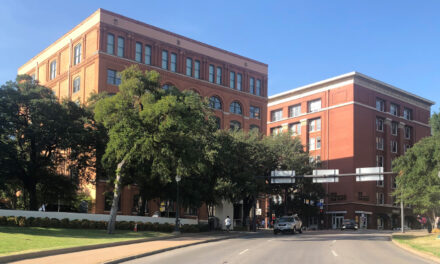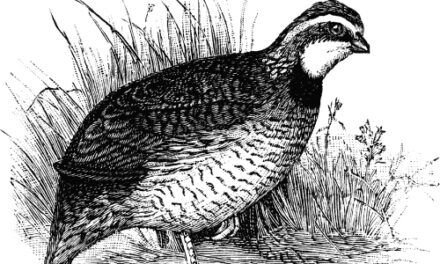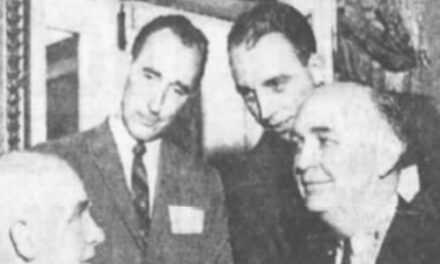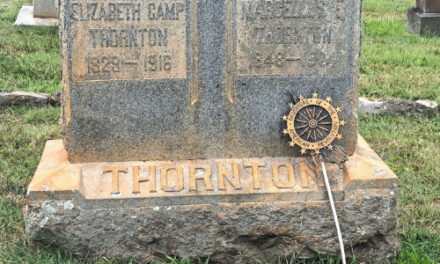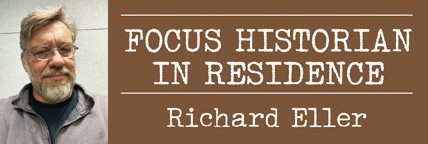
In 1920, Emma Ingold Bost published a book. That was a significant feat, perhaps the first time a woman had written and brought to the public a literary work in Hickory. Those around town who saw it would have immediately recognized the name. Her manuscript was called Songs in Many Keys, a collection of poetic observations.
Born in Lincoln County in 1859, Emma Ingold was the daughter of the Rev. Jeremiah Ingold, who was “generally credited with delivering the first sermon ever preached in what was then known as Hickory Tavern.” She grew up in the church her father established, Corinth Reformed Church, serving in various capacities. In fact, one of the church’s missionary circles was named for her at Corinth. In 1888, she wed Charles C. Bost. They were married for over 50 years and she dedicated her book to him writing that his “interest made it possible.”
When it debuted in early 1921, Songs in May Keys enjoyed a warm reception. One review asserted that “the writer has a genuine poetic impulse combined with the gift of adequate expression.” “Her verses have a wide appeal,” they said, citing her “carefulness of execution, a lively imagination and a tender and noble sentiment.” Another notice appreciated that “she is actively interested in the problems of the community,” which is part of what gives her voice an authenticity that reverberates down through the ages. Over the years, he poems could be found in the pages of various newspapers, when they fit the occasion. She wrote about a wide variety of topics.
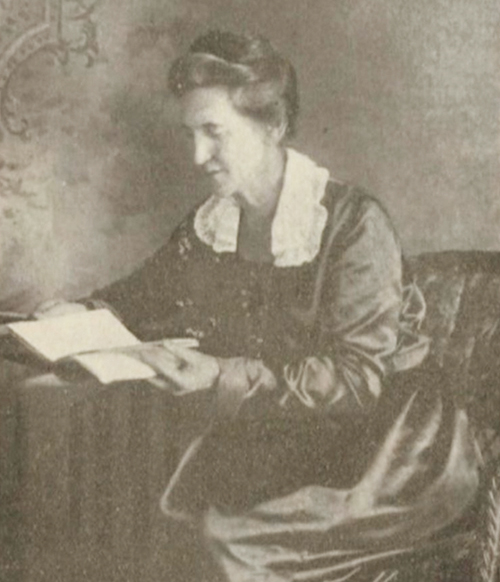
Photo: An image of Emma Ingold Bost from her 1920 book, Songs in Many Keys.
In Songs in May Keys, there are sections concerning war (she was among the generation deeply affected by World War I), home, the seasons, and a whole miscellaneous segment. By more modern standards, the verse might seem simplistic, her rhymes a bit too cheeky for our times, but she expresses a heartfelt sentiment that we can all recognize. Most current to us in this time is a poem on our annual ritual of renewal.
The New Year
“We question on its threshold, what will the New Year bring?
Will hearts be dumb with sorrow, or lips be glad and sing?Or will some cord be broken that binds us close today?
Will Fortune smile upon us throughout the coming year?
Or will Misfortune bring us her sorrow, grief and tear?
Will skies be bright above us, and days be calm and still?
Will storm and stress and tempest combine to work their will?
But no, we will not question, we will not seek to know,
What the New Year is holding for it is better so.
The old year is behind us, The New Year, veiled from sight,
Is ordered well, and this we know ‘Whatever is, is right.?’”
Like Mrs. Ingold Bost, we don’t know what the new year will bring. Life, death, joy, sorrow? Those are all age old questions that have been asked of the future for a long time. Some things do not change.
Over the next few weeks, I’ll dig into more of her work. Since she was such a stalwart figure in Hickory, there might be some stories about her that would enlighten us all. Let’s crowdsource our collective knowledge and propel the work of Hickory’s original poet laureate into another century of appreciation.


